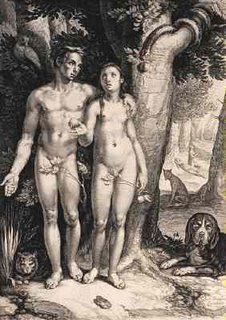
During a recent pre-marital counseling session, my pastor used Genesis 2 and 3 to speak about what marriage was, how it was established, and what made marriages healthy or unhealthy. The discussion took me back about two years to a class at my seminary that focused on Genesis, where we discussed the nature of the serpent, whether the Fall was a reality, and who was really being honest in that garden of lore. At the time, my professor posited the idea that the serpent was the truth-teller in the Garden and God was the liar, and this has led me to wonder if academia and faith are at all compatible.
Before creating Eve, God instructed Adam not to eat of the tree of the knowledge of good and evil, “for in the day that you eat of it you shall die” (2:17). According to my professor, when the serpent told Eve that she would not die if she ate from this tree, it was, in fact, telling the truth. This was attested to by the fact that neither Adam nor Eve died immediately after eating this fruit. So it was God who had told the lie, God who had tricked Adam, God who was seemingly using these puppets he created as a kind of social experiment, and little else. The real truth lay, according to my professor, with the serpent. Looking over my notes from the class, my exact comments were, “The snake was right; they did not die, but they did get knowledge of good and evil”.
Looking back, I’m ashamed I took all this in at face value. But if this bit of scripture is taken literally and believed to be inerrant, I can see how this conclusion was reached. Adam and Eve did not die immediately. But is this what Christians believe about the events in the Garden of Eden, that God was the liar and the serpent the beacon of truth? No, we do not, and the Church has never held this to be the case. In fact, this act of disobedience by Adam and Eve did bring death into the world. Adam and Eve didn’t die immediately, but they would no longer escape death altogether. According to Richard Marius, a not-so-sympathetic biographer of Luther, Luther saw Adam as created immortal, “but God imposed death on Adam for sin, and death is carried on in the original sin that exists in procreation and the concupiscence that inevitably goes with sexual intercourse” (Martin Luther, 65). Lutheran theology and Catholic theology before it understood the serpent to be the deceiver, when he said the fruit would not introduce death when, of course, it did.
So why teach that the serpent was doing Adam and Eve some sort of favor by letting them in on the truth? Was this just an attempt to challenge students so that they may come to their own theological conclusions about the Fall? I wonder if pressures in the academic world force us to constantly seek new interpretations when, in fact, no new interpretations are needed? Must we search for new clues into what scripture is trying to say at the cost of saying something contrary to the nature of God? And what is more contrary to our understanding of God’s grace than the thought that God lies to us, tries to deceive us, and the real advocate for honesty in the Garden of Eden was the serpent? Does no one else see this as getting it all backwards?
Sometimes I wonder about the historical-critical and/or academic approach used in the vast majority of seminaries. I am not opposed to rigorous, serious and academic study of scripture; I understand there must be a balance between piety and technique. But I am opposed to teaching that plants seeds of distrust. Doubt is more understandable, even organic to our faith. Distrust strikes me as more dangerous. It is time to bring attention to the fact that if we are not careful in our interpretation of scripture, we may end up committing a grave sin: calling God a liar.

No comments:
Post a Comment